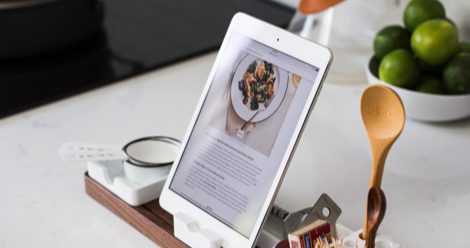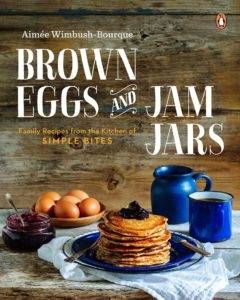
My Own Personal Brand of Cookbook Escapism
There is a bit of a pipeline these days when it comes to cookbook authors: many of them grow an organic following on social media before they are noticed by cookbook publishers and snapped up as an easy way to sell a lot of copies. In the course of creating a cookbook, however, they also create a lifestyle.

Many people think of high fantasy books or other-worldly science fiction as literary escapism, a chance to leave your own world and join one that is wildly different from your own, while still encountering familiar emotions and challenges. I find that cookbooks often give me an even more escapist view of things: in the cookbooks, I can both garden and be close to my many children; I can preserve fruit and can tomatoes and have enough time to put on a non-stained flannel shirt and smile for the camera. The escapism of cookbooks tends to be the beauty and delicacy of daily life, but with no mess, no clutter.
I’ve seen girls who are taking pictures of their first baby or who are preparing the décor for their weddings and I’ve noticed this impulse to gussy up real life in so many ways—to act like an antique globe just happened to accent that wooden shelf, or act like lace just casually ended up sewn onto a burlap table runner. Forced, in-person attempts to make daily life look perfect feel surreal to me, but when I get into reading a beautiful, full-color cookbook, I don’t mind so much. The illusion is maintained if there are no big blue plastic tote boxes full of “accent pieces” just sitting here and there in the pictures.
As with many of the books that we read to get away from daily life, cookbooks can give us the illusion of effortlessness, and let’s face it: cooking is so rarely effortless! Perhaps that is why so many of us love cookbooks full of well-dressed, perfectly made-up people who are getting through their kitchen duties without a wrinkle. I know that it is a comforting daydream for me to see myself as a cookbook heroine who gets to keep tomato spatter off the counters with my magical perfection.
One nice thing about all this escapism, however, is that, in these books, the luscious prose makes every aspect of domesticity seem like a pleasure. Because of these descriptions, I recognize myself in a moment of happiness: when I am biting into a pink bumblebee tomato, or simmering celery and onions, or picking up the steamy lid of a slow-cooker chili. I can see that even though my kitchen is messy and my clothes don’t match, the escapism books are cuing me to notice all the small moments when I’m actually happiest in the kitchen, and to savor them the way we all savor a really great meal. It’s escapism that leads me back to the real world, and makes me grateful for it.
















